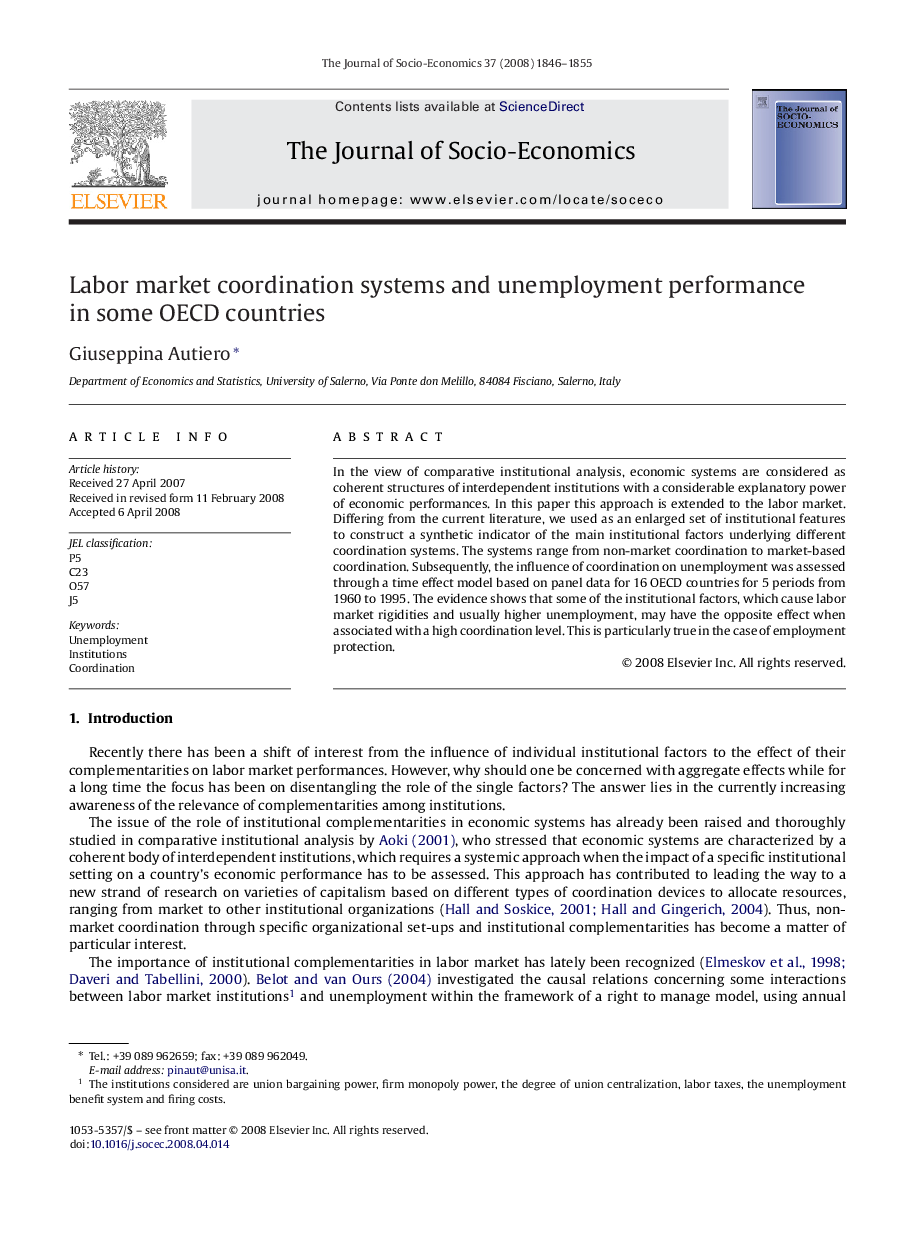| Article ID | Journal | Published Year | Pages | File Type |
|---|---|---|---|---|
| 971115 | The Journal of Socio-Economics | 2008 | 10 Pages |
In the view of comparative institutional analysis, economic systems are considered as coherent structures of interdependent institutions with a considerable explanatory power of economic performances. In this paper this approach is extended to the labor market. Differing from the current literature, we used as an enlarged set of institutional features to construct a synthetic indicator of the main institutional factors underlying different coordination systems. The systems range from non-market coordination to market-based coordination. Subsequently, the influence of coordination on unemployment was assessed through a time effect model based on panel data for 16 OECD countries for 5 periods from 1960 to 1995. The evidence shows that some of the institutional factors, which cause labor market rigidities and usually higher unemployment, may have the opposite effect when associated with a high coordination level. This is particularly true in the case of employment protection.
